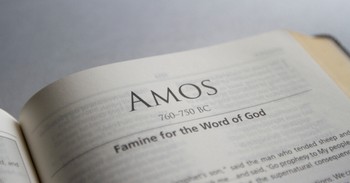5 Ways We Subconsciously Make Worship about Us

You’ve probably said it – or at least heard someone else speak the words: “I wasn’t really into the worship this morning.”
You may even be someone –or know someone—who has left a church because of a “worship experience” or lack thereof.
But when did worship become about us, our preferences, or our experience?
In our North American culture, the word worship has become synonymous with singing in church and associated with different musical styles. Yet worship is about the worth-ship of God, the glorifying of His name, and the surrender and allegiance of His people to the Almighty Creator and Sustainer God. I know we don’t do it intentionally, but we can approach the entire topic as if it’s about us and our entitlement to a specific experience, rather than about God and what He is entitled to receive from us.
Here are just five ways we subconsciously make worship about us, and how to get our focus back on the One to whom it’s due:
Photo Credit: ©GettyImages/Bartek Szewczyk
1. We consider worship the optional portion of a church service, rather than a lifestyle.
Worship is neither confined to a church service, nor found just in musical expression. And it certainly is not an option, but a command and an overflow of the evidence that we belong to Him.
I once heard a man refer to the worship portion of his church service as “the previews.” He admitted to regularly skipping the first 20 minutes of the service (opening prayer, praise/worship, Scripture reading, and the collection of the offering) as the “previews” before the main show, which he believed was the sermon. Yet corporate worship also includes prayer, the reading and teaching of God’s Word, and the giving of our tithes and offerings. According to Acts 2:42, the Christian church’s foundation was built upon authoritative teaching, fellowship, the breaking of bread, and prayer – four elements that can also be considered corporate worship.
Worship is so much more than corporate singing. It is a lifestyle of adoration to our God. And it’s something we do every day of the week, not just on Saturday nights or Sunday mornings. Worship is described throughout Scripture as:
- ascribing to Him the glory due His name (Psalm 29:2)
- bowing down (humbling oneself) and kneeling before Him as our Maker (Psalm 95:6)
- exalting Him as God (Psalm 99:9)
- declaring that Jesus is truly God’s Son (Matthew 14:33)
- presenting your bodies “as a living and holy sacrifice, acceptable to God, which is your spiritual service of worship” (Romans 12:1)
- taking pride in Christ Jesus, and putting no confidence in the flesh (Philippians 3:3)
- rejoicing always, praying continually, giving thanks in all circumstances (1 Thessalonians 5:16-18)
Longtime worship leader Kristi Foss said she continually sees believers associate worship with singing and therefore, think they aren’t required to do that if they don’t consider themselves a singer.
“Worship is not about singing,” Foss said. “It’s not about a song or a style of music. God calls us to sing or worship as a lifestyle. He never prefaced that call and command with whether or not we felt we had a good voice. It’s not about our voices and how we sound or even that we sing at all. It’s about using what He gave us to give back to Him.”
In that regard, worship is whatever we do with all our hearts for Him (Colossians 3:23). Whether it is writing, painting, teaching, dancing, investigating, homemaking, babysitting, cashiering, singing, or anything else—give Him your all in humble surrender, and it’s a form of worship.

2. We participate in worship only when we’re “feeling it.”
Have you ever witnessed others who were “getting into” the worship but you weren’t? Maybe you had much on your mind, or your heart just wasn’t in it. Maybe you participated in worship out of a sense of obligation, but were later convicted about going through the motions.
While we sometimes think we have to be in the mood for worship, that’s another way we make it about ourselves and our experience. God is a Person. And His presence is with His followers constantly through the indwelling Holy Spirit. And the moment we become aware of it (which should be with every breath in our lungs and with every beat of our hearts), our response is to submit to His worthiness and proclaim Him as God—regardless of how we feel or the kind of day we’re having.
When the Prophet Isaiah saw his vision of the Lord “sitting on a throne, lofty and exalted, with the train of His robe filling the temple,” angels were standing above Him covering their faces and feet while flying, calling out to one another “Holy, Holy, Holy, is the Lord of armies. The whole earth is full of His glory” (Isaiah 6:1-4 NASB). This act of worship caused the foundations of the thresholds of the temple to shake and the temple to fill with smoke.
Isaiah, a sinful human in the presence of the Holy God, was aware of just how imperfect He was as he saw the vision of the Lord in all His glory. When we realize Who God really is, we recognize how far beneath Him we are, and we can’t help but feel humbled, lowly, and subject to Him. Worship flows from the awareness of Who God is.
Photo Credit: ©GettyImages/ColbieCreative
3. We exert our preferences into the idea of worship.
If you’ve ever found yourself thinking, I didn’t like the worship this morning, or I prefer the worship at that other church, what you are really saying is, Worship is about me and what I like and whether or not I want to participate.
We might even blame others—or a certain musical style or worship leader—if we don’t feel we worshipped adequately, or that our worship experience met our expectations, or if an environment was “worshipful enough.” As if our opinion or experience matters. Shouldn’t we be, instead, asking God what He considers relevant, authentic, and meaningful worship?
In John 14:23, Jesus told a Samaritan woman worship wasn’t about where it was done – in a sanctuary, warehouse, converted storefront, or home – but about how it’s done. And He wasn’t talking about a beat or lyrics, the absence of drums, or what year the music was written. He said, “true worshipers will worship the Father in spirit and truth; for such people the Father seeks to be His worshipers” (John 14:23 NASB).
To worship God in spirit and truth means having the right heart and motives as we come before the King of kings, either in private or corporate worship, and acknowledging His indwelling Spirit that gives us the desire and enables us the obedience to worship Him in the first place. It then involves a surrender of all that we are and have, to all that He is. Surrender, after all, is saying “Your will, not mine” to God in every area of life—including what we consider our worship preferences.

4. We see it as an experience for us, rather than a gift to God.
Foss recalls several years ago when she and her team members were discussing the format for their church’s worship set. One of the artists on the team said, “I feel like that transition interferes with the worship experience we’re trying to create.”
For the first time, Foss realized those who are a part of leading worship can tend to think they are responsible for creating people’s experience with God – or at least an atmosphere so they can experience God. But even that is about us, once again, and our experience.
“A worship leader or a member of a band can lose sight of what worship really means when we start thinking about the worship experience and what we do to get people involved,” Foss said. “When did it become our job—as worship leaders—to get people to experience God or engage in worship?”
To put the expectation on a person or team, implies certain people must be good at motivating others or getting them excited about something. Yet, do we want them excited about a song, a feeling, a church, a charismatic leader, or a method of leading? And why do we need another person to get us into “worship mode”? If our focus isn’t on God, it’s on us or other people. And that isn’t God-worship.
Trying to create worship that is “relevant” (one of the buzzwords among church worship teams today), and focusing on the congregation’s participation, preferences, and ultimately their experience, suggests a perspective in which worship is about you, me, and the others who attend our church service. Yet worship, once again, is about God and what He receives from us. Instead of looking to others to create for you an atmosphere of worship, look inward to make sure your heart is adequately prepared as an environment to worship your Creator and Lord.
Photo Credit: Pexels/Wolfgang
5. We forget worship is about humility.
Every place in Scripture where we read of someone worshipping God, or being in His presence, there is an account of awestruck fear within the one worshipping. There is kneeling or falling prostrate, or being “as one who is dead” in an awareness of their sin and lowliness as compared to the Holy, Perfect, and Righteous One.
Again, the prophet Isaiah, when he saw God in all His glory, said: “Woe to me, for I am ruined! Because I am a man of unclean lips, and I live among a people of unclean lips: For my eyes have seen the King, the Lord of armies” (Isaiah 6:4 NASB). Worshipping God was about:
- recognizing God’s awesome (or fearsome) holiness
- an awareness of one’s sin and imperfection in the presence of the Holy One
- a humble realization that God is God on the throne and we are the ones who are subject to Him
In Luke 7:36-38, when a sinful woman came into the presence of Jesus, she poured an expensive perfume on Him and cried at His feet, wetting His feet with the perfume and her tears, and drying His feet with her hair. She was broken in the presence of the Holy One.
Today, we understand the atoning power of Christ’s death on the cross for our sins, and His resurrection to bring us new life in Him, and therefore we can come boldly to His throne of grace to obtain mercy and find grace in our time of need (Hebrews 4:16). Yet, there is still reverence for Who He is and what He’s done as we acknowledge He is God and we are not.
When worship involves anything less than our humble state before Him, we are going through the motions and not fully understanding or acknowledging the worth of who He is. Remember, He is God and you are not. And therefore, He is worthy of all your praise.
How can we make worship less about you and me and more about Him? Follow the guidelines of Psalm 95:1-7:
1) Make a joyful noise unto the Lord.
2) Come into His presence with thanksgiving and songs of praise.
3) Exalt Him as a great God, and a great King above all gods.
4) Recognize all the worlds His hands have made.
5) Worship Him and bow down.
6) Kneel before the Lord, your Maker.
7) Acknowledge that He is your God and you and I are the people of His pasture, and the sheep of His hand.
For more on growing closer to God’s heart through worship, see Cindi’s books, God’s Whispers to a Woman’s Heart, and When Women Long for Rest.
Originally published February 27, 2025.






